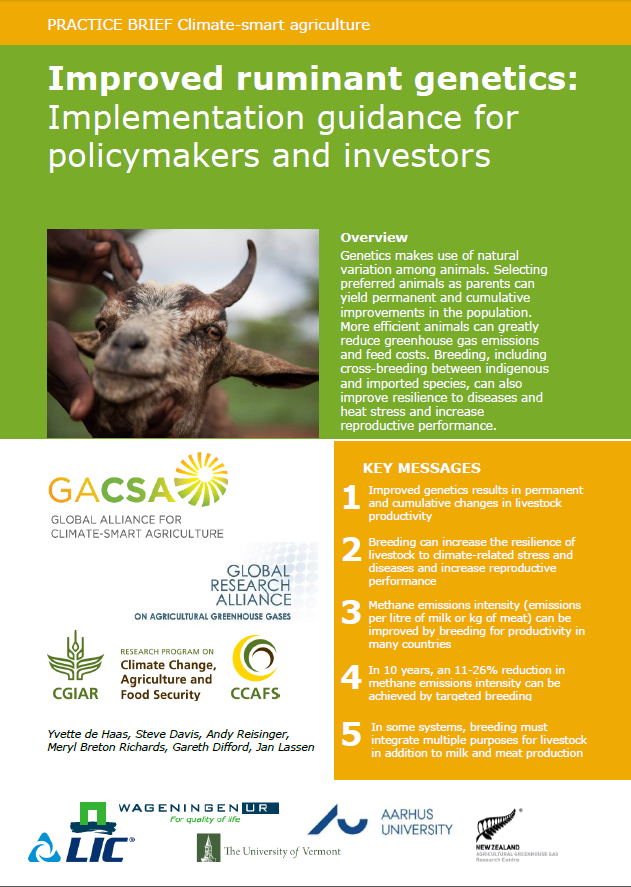Animal breeding benefits farmers, offers food secure opportunity for mitigating climate change
Improved ruminant genetics increase animals’ resilience to climate-related stresses, increases reproductive performance, and – in some countries – could achieve emission reductions of 11-26% per unit of product, according to a new practice brief written by scientists from the Global Research Alliance’s Livestock Research Group and the CCAFS low emissions agriculture flagship. This brief is part of the CSA practice brief series of the Global Alliance for Climate Smart Agriculture (GACSA) Knowledge Action Group.
The brief summarises the state of the science in this area and provides implementation guidance for policymakers and investors. It describes how animal breeding can increase livestock productivity and resilience to climate change, while also reducing greenhouse gas emissions intensity. It focuses on opportunities in developing countries, where the majority of the world’s ruminant populations can be found.
More details on the practice brief can be found in a joint LRG/CCAFS blog post here. You can also download the practice brief here.

